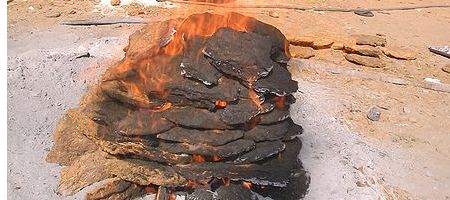Indian scientists have come up with a cheap way of storing the sun’s heat and then releasing it slowly through the night.

Many regions have hot days but freezing nights, and the aim is to keep houses warm without needing to burn wood or fossil fuels.
Mechanical engineer Meenakshi Reddy of Sri Venkateswara College of Engineering and Technology in Andra Pradesh based his invention on phase change materials (PCM), which, without taking up much room, can store a large amount of heat in the form of latent heat. Heat is absorbed when PCMs melt, and released when they freeze.
Reddy’s material is a simple mixture of paraffin wax – which melts at about 37 Celsius – and stearic acid, a fat commonly used to make soap. When warmed by the sun, it becomes entirely liquid, and as it solidifies it slowly releases the stored heat.
The process is similar to the phase changing heating on which PCM-based hand-warmers are based. However, while these need to be boiled in a pan or heated in a microwave oven to absorb latent heat, Reddy’s material just needs the warmth of the sun.
His team’s tested spherical capsules 38 millimetres in diameter containing a blend of paraffin and stearic acid, which can be floated on the top of water in a tank.
Reddy’s found that the overall heating efficiency of the mixture holds up with relatively low levels of paraffin wax; and stearic acid’s a lot cheaper and more readily available in India than paraffin wax, keeping the price of the mixture down.






